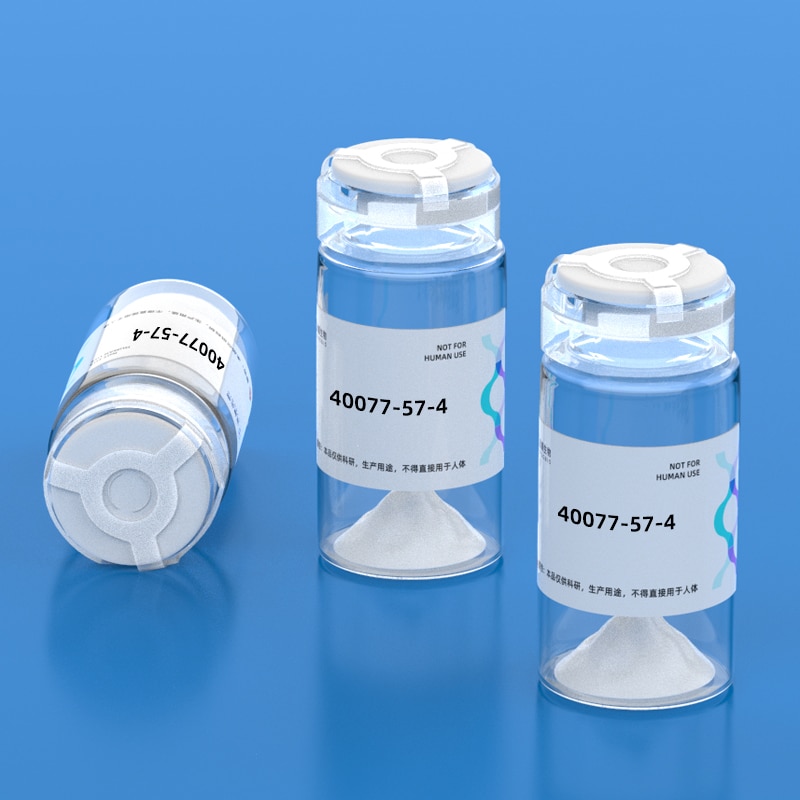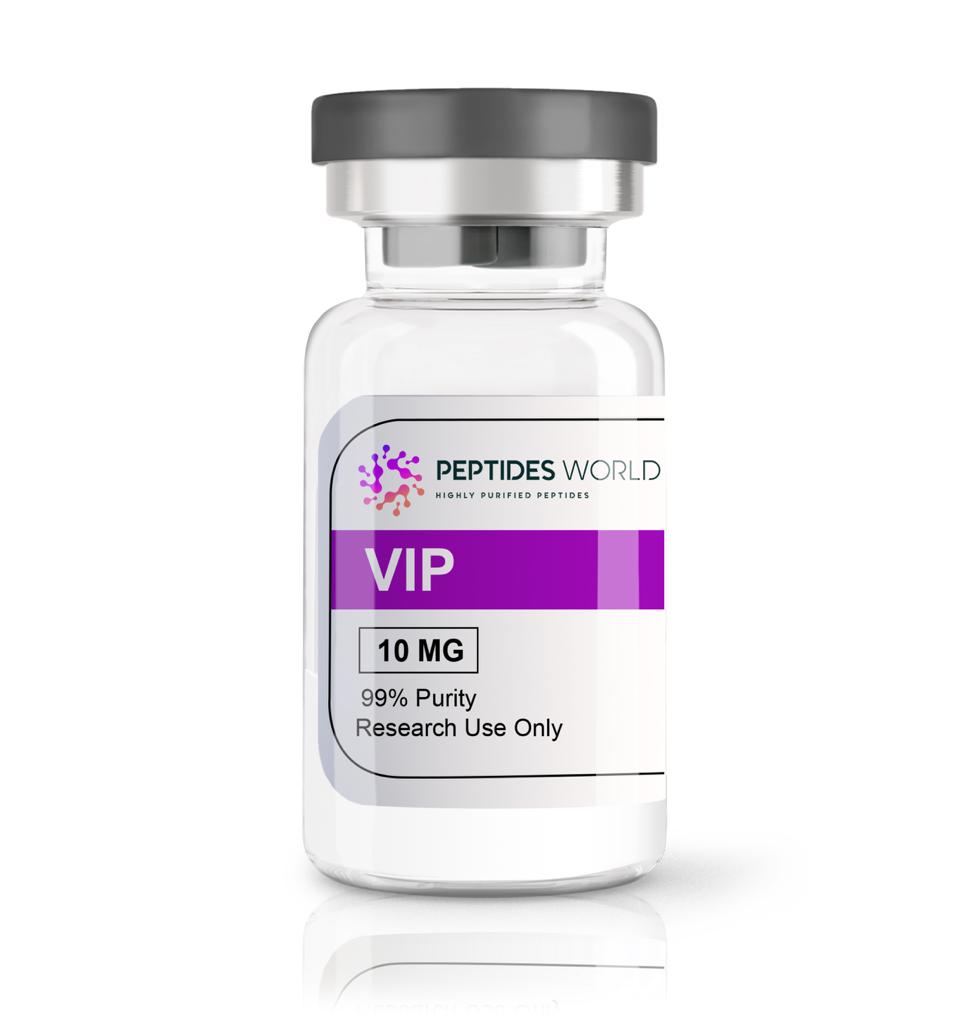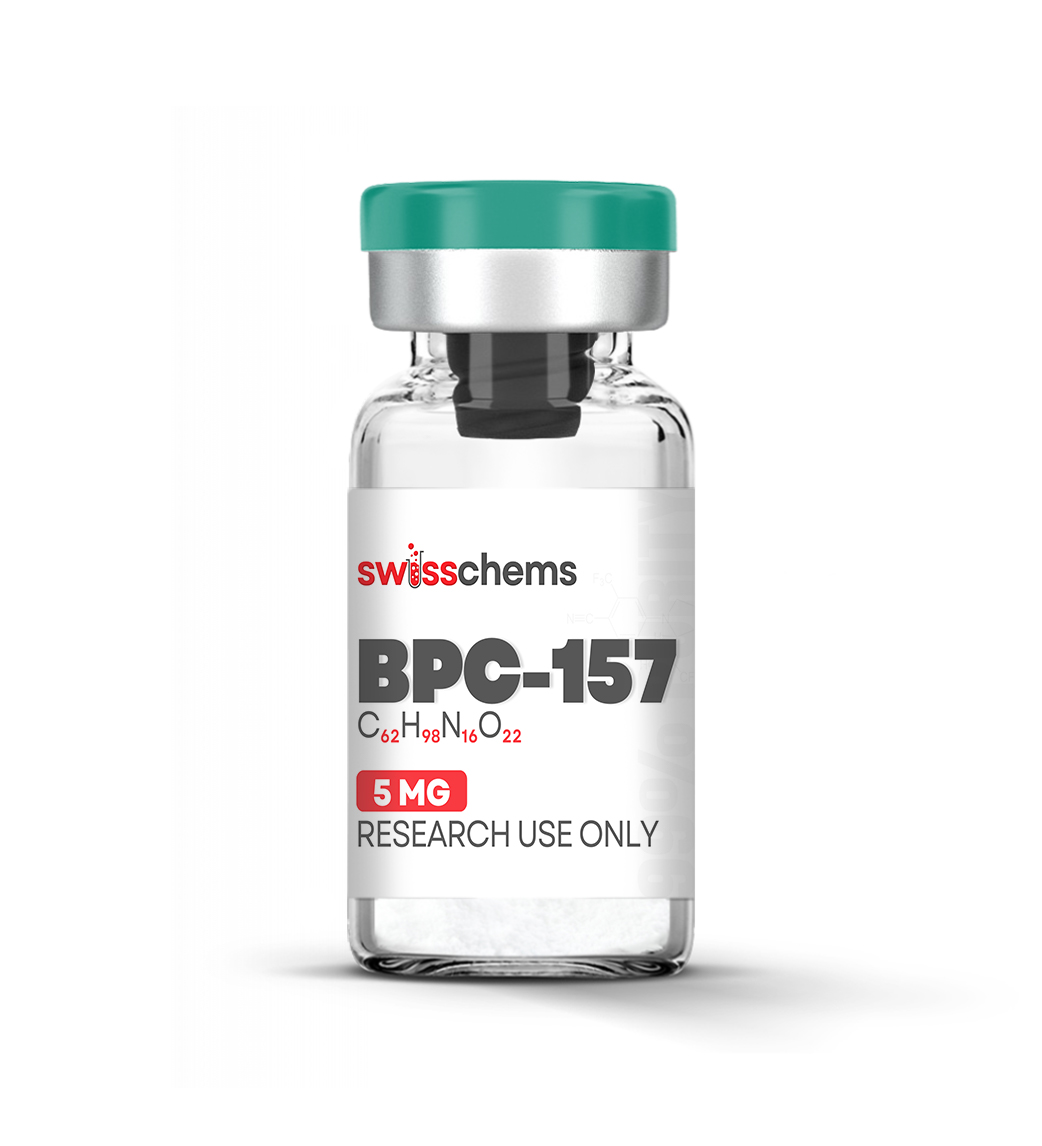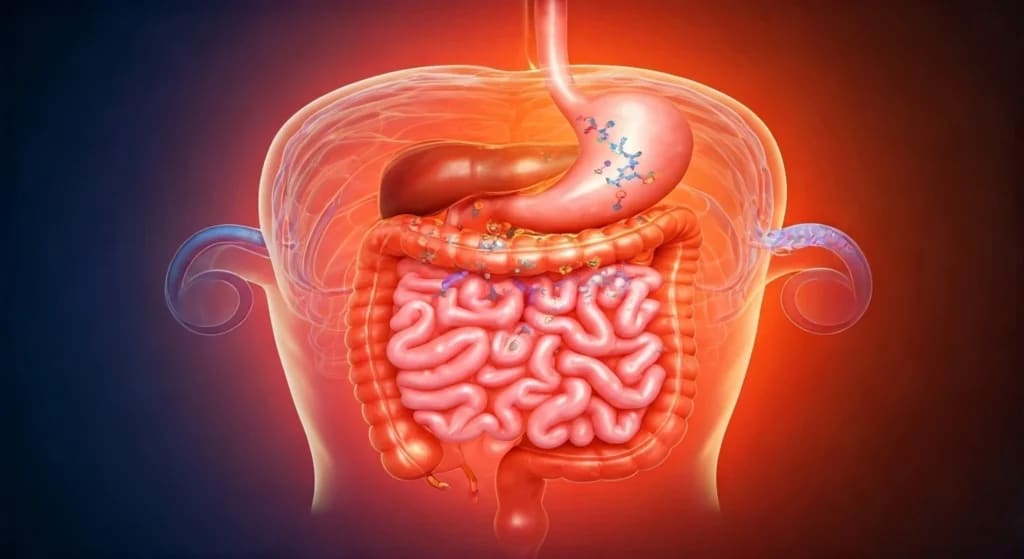Vasoactive Intestinal Peptide (VIP) is a pleiotropic peptide with important biological functions. It is responsible for inhibiting smooth muscle relaxation, encouraging vasodilation and maintaining healthy blood flow. Many researchers and professionals choose to Buy VIP peptides Holland for use in advanced biomedical and therapeutic studies.
The gene VIP also serves as a critical modulator of immune, anti-inflammatory and respiratory and digestive functions. It is investigated as a therapeutic candidate for the treatment of inflammatory diseases (i.e., arthritis, Crohn’s disease) and pulmonary diseases (i.e., pulmonary hypertension, asthma).
Also, VIP has been considered for use in neurologogical studies because of its neuroprotective effects on neurons and its possible use in therapy for neurodegenerative disease. Its range of activities leves it as an attractive target in clinical and medical studies.
Molecular Formula: C147H237N43043S
Molecular Weight: 3326.8 g/mol
Amino Acid Peptide Sequence: HSDAVFTDNYXRLRKQM AVKKYLNSXLN


Netherlands The clinical studies have indicated that VIP peptide would have the following advantages:
VIP carries out its activities through the binding to specific receptors, VPAC1 and VPAC2, that are widely distributed in the tissues. Activation of this receptor stimulates adenylate cyclase and increases the production of cyclic AMP (cAMP). Increased cAMP concentration activates the latter signaling pathways which control many biological functions.
Through these pathways, VIP plays a role in smooth muscle relaxation, leading to normal gastrointestinal motility and vascular tone. It also minimizes vasodilation, improving blood circulation and lowering the level of blood pressure.
VIP is an important immune modulator,--reducing inflammation by negative regulation of pro-inflammatory cytokines and promoting anti-inflammatory responses. At molecular level, VIP regulates gene expression and cellular function in the discipline of tissue homeostasis and repair.
Moreover, the protective effect of SC-EGCG is associated with its capacity to protect neurons against oxidative damage and apoptosis. Such mechanisms show the overall effectiveness of VIP in the treatment of inflammatory, respiratory, and neurodegenerative disorders.
Shop high quality VIP Peptide Nasal Spray by PharmaLabGlobal Netherlands – A painless peptide delivery solution for your research.

VIP Peptide or Vasoactive Intestinal Peptide has been demonstrated to have important applications at least in:
Regulates muscle relaxation
VIP (Vasoactive Intestinal Peptide) modulates relaxation of smooth muscle by receptor-mediated activation of adenylate cyclase after binding with VPAC1 and VPAC2 on the surface of target cells. This raises levels of cyclic AMP (cAMP) which activates a series of pathways which result in smooth muscle fibres relaxing.
In the gut it helps to facilitate motility, which is the rhythmic contractions, and relaxations that move the food through the intestines.
VIP supports vasodilation in the vasculature (encouraging blood flow and healthy blood pressure). These processes promote the health of the gut and vasculature, facilitating the delivery of vital nutrients and oxygen to various parts of the body .
Helps lower blood pressure
VIP Peptide relaxes the muscles and opens the blood vessels, resulting in an increased blood flow with decreased resistance. VI-mediated promotion of vasodilation [3, 4, 6] optimizes the flow of oxygen and nutrients through tissues, beneficial for cellular functioning [6]. In vivo studies have also showed that it can help reduce blood pressure, alleviating pressure on the heart and lowering cardiovascular disease risks. The vasodilatory effects of VIP are important for maintaining cardiovascular health and regulating the body’s physiology.
Reduces inflammation
VIP attenuates inflammation by reducing the expression of pro-inflammatory cytokines, like TNF-alpha and IL-6, and at the same time, enhancing the anti-inflammatory signaling axis. VIP inhibits the action of inflammatory signaling molecules and alters the behavior of immune cells, such as T cells and macrophages, by binding to receptors on the immune cells . This dual activity contributes to the regulation of exaggerated inflammatory responses, which may result in chronic inflammation and tissue injury. Since VIP can stabilize immune equilibrium, it is a new promising therapeutic agent for the treatment of inflammation mediated diseases like arthritic, colitis and respiratory diseases. In the absence of inflammation, VIP contributes to general health and tissue homeostasis .
Modulates the immune response
Studies have demonstrated that VIP regulates the immune response by modifying pro-inflammatory and anti-inflammatory pathways. It does so by interacting with receptors on immune cells that dampen the manufacture of pro-inflammatory cytokines such as TNF-alpha by way of increasing anti-inflammatory mediators. VIP also modulates the function of immune cells (i.e. T cells and macrophages), which stimulate a more orchestrated response of the immune system. These functions are important to limiting inflammation and maintaining proper immune homeostasis to prevent disease. Due to its immune-modulatory properties, VIP is an excellent candidate for treatment of autoimmune and inflammatory diseases by re-establishing normal homeostasis and generally enhancing immune fitness .
Enhances respiratory function
Researchers believe that the VIP peptide may benefit the patients by relaxing the smooth muscles in the airways and soothe lung inflammation. VIP inducing bronchodilation through binding to certain receptors would lead to the dilation of the airways and reduce the resistance to airflow [8]. And it has an immunomodulatory effect on lung, can inhibit the release of pro-inflammatory cytokines, and suppress inflammation. These properties are the reason why VIP is considered a candidate of first option to treat diseases such as asthma and pulmonary hypertension characterized by airways obstruction and inflammatory mechanisms.
Potential treatment for specific neurologic disorders
VIP acts on nervous system receptors and exerts a neuroprotective effect on neurons, reduces oxidative stress and suppresses neuroinflammation, all of which are involved in the chain of mechanisms underlying the advance of diseases such as Alzheimer’s, Parkinson’s and multiple sclerosis [9]. It contributes to neurohealth by modulating immune reactions in the brain and preventing cell damage. These effects lead to better cognitive function, decrease in disease progression, and better brain health.
Purchase VIP Peptide Netherlands Pre-mixed Pen. Peptide pen kits and premixed refill cartridges provided in Canada by PharmaLabGlobal for research purposes only.
Can VIP Peptide improve sleep?
Sternow, et al demonstrated a sleep-inducing effect of a VIP peptide in pharmacologic loads in vitro. It is part of the system that controls sleep, including rapid eye movement (REM) sleep. Researches indicate that VIP may promote (REM sleep) and involved in the regulation of normal sleep.
What are the disadvantages of VIP?
Adverse effects The possible side effects of VIP: 21 relatively common – sensations of flushing, warmth best._OCCURRED, however also by confusional how betweendifficult to differentiate * dizziness Figure 3 Caps ) OR opressive chest pains etc. Furthermore, systemic injection of VIP may cause cardiovascular and gastrointestinal effects, such as dramatic blood pressure reduction .
Can I reconstitute the peptide with distilled water?
Reconstitution of Peptides using water (distilled) is usually not recommended. PH Sensitivity of Peptides Peptides can be pH sensitive and might need a buffer or solvent to ensure their stability and solubility. The use of distilled water causes possible degradation of the peptide or incomplete resuspension. Clinical studies So if your doing clinical studies, go with the recommendations of either Bacteriostatic water or Sterile water.
How does VIP assist the human digestive system?
Netherlands Research VIP analogs have shown that it is an extremely important factor in maintaining the human digestion system. VIP's physiologic effects on the intestines are significant, since they are suggested to lead to relaxation of the smooth muscle, resulting in enhanced motility and flow of intestinal contents. In the small intestine, for example, VIP stimulates water and electrolytes secretion, which is necessary to guarantee proper digestion and nutrient absorption. It also has an effect on the pancreas by stimulating the secretion of digestive enzymes, thus aiding food digestion and nutrient absorption in the intestine.


The stack of BP-157 and VIP together could provide an enormous synergy of healing and immune-modulating influence.
BPC-157 is best known for its regenerative-tissue properties, where it accelerates the healing of wounds and repairs damaged muscles, tendons, and ligaments. VIP, conversely, modulates immune responses by decreasing inflammation and favoring a balanced immune response.
Collectively, they help the body heal, can stop chronic inflammation, give overall better health. Synechococcus 6834 Holin Inflammatory Diseases Tissue Injury Neurological Disorders Healing Protection This therapeutic combination is significantly valuable in the treatment of inflammatory diseases, tissue injury, and neurological disorders, affording improved healing and protective effect.
Purchase BPC-157 VIP Peptide Combo from PharmaLabGlobal Netherlands available to buy for research purposes at PeptideNorway.com

Understanding the Synergistic Effects of KPV and BPC-157 Peptide Combination
Exploring the synergistic effects of combining KPV and BPC-157 peptides. These peptides are recognized for their healing properties, particularly in the treatment of gastrointestinal disorders such as inflammatory bowel disease and peptic ulcers.
The combination is also beneficial for joint and muscle injuries, and central nervous system disorders such as Alzheimer’s and Parkinson’s diseases. The article highlights the potential of this peptide duo in promoting tissue repair and reducing inflammation, making it a promising area for further research in medical treatments.

VIP Peptide: Enhancing Gastrointestinal Function
This blog discusses the role of Vasoactive Intestinal Peptide (VIP) in enhancing gastrointestinal function.
It highlights VIP’s potential as a therapeutic agent for gastrointestinal disorders, such as irritable bowel syndrome (IBS), due to its ability to modulate muscle activity and reduce inflammation. The article emphasizes the peptide’s promising role in improving digestive health and managing complex gastrointestinal conditions.

Unveiling the Protective Power of NAD+ Against Alzheimer’s Disease
This article explains how NAD+ helps maintain neuronal function by improving mitochondrial efficiency and activating sirtuins for cellular repair.
Recent studies suggest that increasing NAD+ levels can enhance cognitive function and reduce pathological markers associated with Alzheimer’s disease. The blog underscores NAD+’s potential as a therapeutic agent, offering hope for new treatments in combating this neurodegenerative disease.